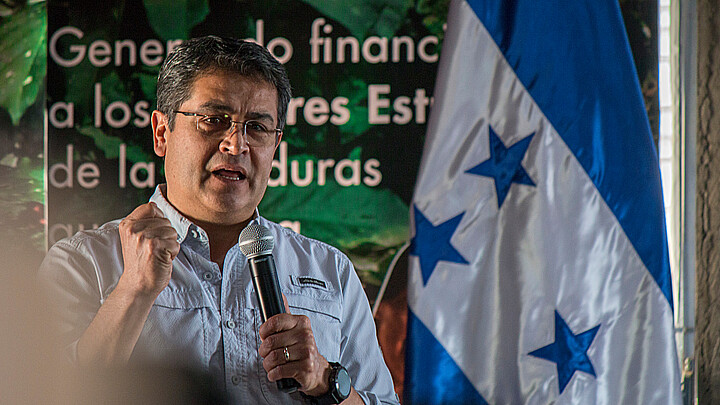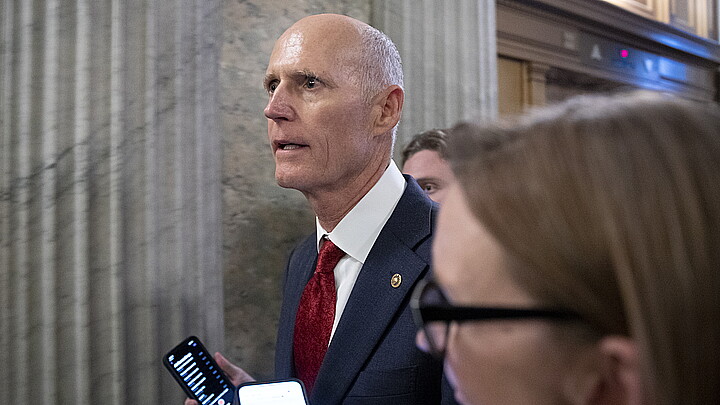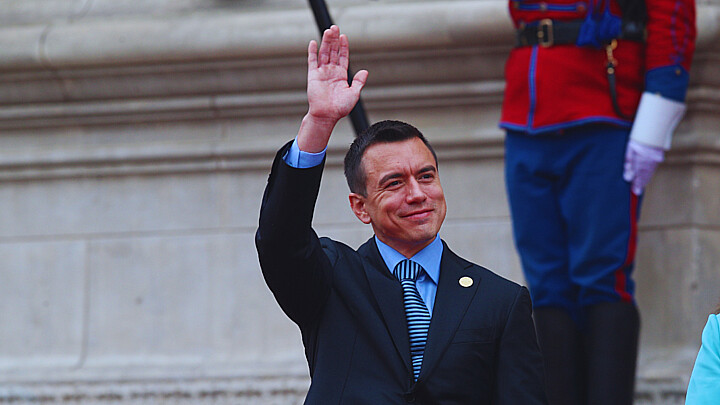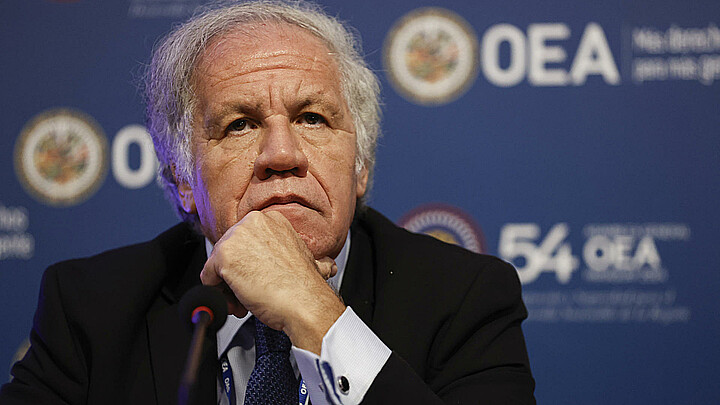Politics
Honduran ‘democratic-socialist’ presidential candidate congratulated by Maduro as vote count continues
Xiomara Castro, wife of former president and Chavez ally Manuel Zelaya could be the country’s first female president, but critics say she’s “a dangerous radical”
November 29, 2021 9:21am
Updated: November 29, 2021 1:00pm
With more than half of the votes counted on Monday morning, self-identified democratic socialist Xiomara Castro has declared victory in the Honduran presidential election.
Leading the governing party’s Nasry Asfura by nearly 20 points, media reports are already crowning Castro, who is the wife of ousted president Manuel Zelaya, as the first Honduran first female president.
At the Libre Party’s campaign headquarters, supporters celebrated victory in an election that is seen by many as a referendum on corruption and drugs in a country that critics have long charged has become a narco-state.
“We have turned back authoritarianism,” Castro assured her supporters, promising to work with international organizations to fight corruption and work “hand in hand” with the private sector.
“We’re going to form a government of reconciliation, a government of peace and justice,” she noted.
But according to a Reuters report published earlier today, critics aren’t sure what to make of a woman they consider a “dangerous radical,” remembering her husband’s closeness to the late Venezuelan strongman Huge Chavez.
On Monday morning, Castro thanked Venezuela’s Nicolás Maduro on Twitter after he congratulated her for returning “democracy and peace” to Honduras.
A 12 años del golpe de Estado contra el hermano Manuel Zelaya, el pueblo de Morazán retoma el camino de la esperanza otorgándole una histórica victoria a la presidenta electa, Xiomara Castro. La Patria Grande celebra el triunfo de la democracia y la Paz en Honduras. ¡Felicidades! pic.twitter.com/6RxM9uQXIV
— Nicolás Maduro (@NicolasMaduro) November 29, 2021
While the Central American female leader could certainly reverse policies that have weakened her country’s judicial system and emboldened criminal groups, analysts are weary of her approach to hold referendums on key policy issues.
In Latin America, such tactics have long been used by the left to solidify power since governments have used pressure tactics to swing votes in their favor.
In 1999, Hugo Chavez held a referendum on convening a Constituent Assembly, and in in the recent Nov. 21 Venezuelan elections, many voters complained about Maduro operatives holding eligible voters’ monthly food benefits hostage in exchange for proof of voting.
But U.S. officials also fear that the results of Sunday’s Honduran election could be a catalyst for increased violence and instability, thus prompting further migration of Hondurans to the U.S., the WSJ reported.
Stability in Central America is especially important to the Biden Administration, which has repeatedly discussed the need to address the “root causes of migration” and ultimately committing $4 billion to that end.
To date, more than 500,000 Hondurans have headed to the U.S. illegally since Honduras’ contested 2017 election.
Brian Nichols, Asst. Sec. of State for Western Hemisphere Affairs, visited Honduras last week on a three-day mission to meet with political parties, asking them to publicly state they would respect the result of the election.
“I discussed the importance of guaranteeing transparent and peaceful elections,” Nichols tweeted.
In Honduras today, I discussed the importance of guaranteeing transparent and peaceful elections with Foreign Minister @lisandrorosales, Defense Minister Díaz, Security Minister Pacheco, General @TitoLivioMoreno, Vice Chancellor Barahona, and Ambassador @LuisFSuazo. - BAN pic.twitter.com/pECoJBiDAD
— Brian A. Nichols (@WHAAsstSecty) November 22, 2021
“The U.S. government is really anxious to have a government in Honduras that takes corruption, public security and development seriously, whoever may win,” says Migration Policy Institute President Andrew Selee.
Although it may be too early to tell what a Castro presidency will mean for both Honduras and the region, the results of the congressional election could dictate the terms of her time in office.
In the balance also hangs Honduras’ relationship with China, as Castro has signaled that she plans on switching diplomatic ties from Taiwan to China inviting further Chinese investment and power projection into the region.
But Hondurans remain cautious of Castro and her rhetoric.
According to Brendan O’Boyle at Americas Quarterly, many Hondurans didn’t trust Castro as a candidate and fear she might once again take the country in yet another wrong direction.
“For many, the self-described 'revolutionary' Castro would be far from a fresh start,” O’Boyle wrote in a Quarterly article published earlier this year. “Before he was removed in a 2009 coup d’état, her husband had brought Honduras closer to Venezuela’s Hugo Chávez, and much of the business establishment still fears that the Zelayas want to pick up where they left off.”
Ultimately, Hondurans seem skeptical of this year’s candidates and the democratic process in general.
According to a 2021 Latinobarómetro report, only 30 percent of Hondurans agree with the statement, “Democracy is preferable to all other forms of government,” showing the lowest level of trust of democracy in Latin America.










